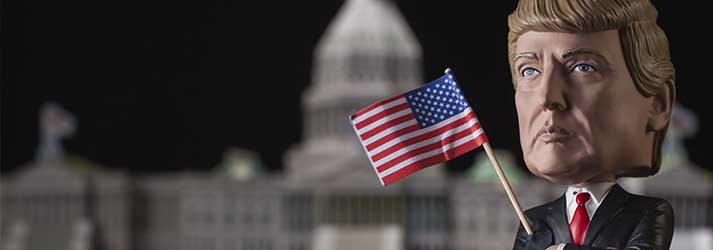Markets have been wobbly this week as the China/US truce appeared to be in jeopardy. The Chinese stock market was in line for its worst week since October, as Trump sought to impose another round of tariffs.
- The motivation for escalating tensions appears to be the US election
- The trade war with China may be a key battle ground in the campaign
- The dispute seems to make a continuation of the lengthy bull market less likely
The motivation for escalating tensions appears to be US domestic policy and may be a sign of the volatility we can expect in the run-up to the US presidential election in 2020. Trump said on Twitter: “The reason for the China pullback & attempted renegotiation of the Trade Deal is the sincere HOPE that they will be able to “negotiate” with Joe Biden or one of the very weak Democrats, and thereby continue to ripoff the United States (($500 Billion a year)) for years to come....”
He appeared to be responding to presidential candidate Joe Biden’s comments at an Iowa campaign rally last week, where the former vice president appeared to dismiss the economic threat from China as an economic threat. “China is going to eat our lunch? Come on, man—China isn’t in competition with us.”
It suggests that the trade war with China may be a key battle ground in the campaign, which could spell bad news for markets. It may bring more reactionary policy designed to shore up key votes from the Trump administration. The Republicans may try to ensure attacks on China become synonymous with ‘Putting America First’ and patriotism.
Investors saw how this might play out in markets this week. Sectors seen as most exposed to the trade dispute between the two countries have led the losses this week – carmakers, for example. In terms of countries, Germany and key parts of Asia saw the most significant losses.
The dispute seems to make a continuation of the lengthy bull market less likely. To sustain their current levels markets appear to need both benign policy from the Federal Reserve and a truce in US/China relations. This had largely been priced in and, as such, markets were vulnerable to bad news.
As usual with Trump, the bark may be notably worse than the bite, but the bark may get a lot worse as the election campaign hots up. Either way, it introduces an element of uncertainty that markets could do without. A time for caution.






